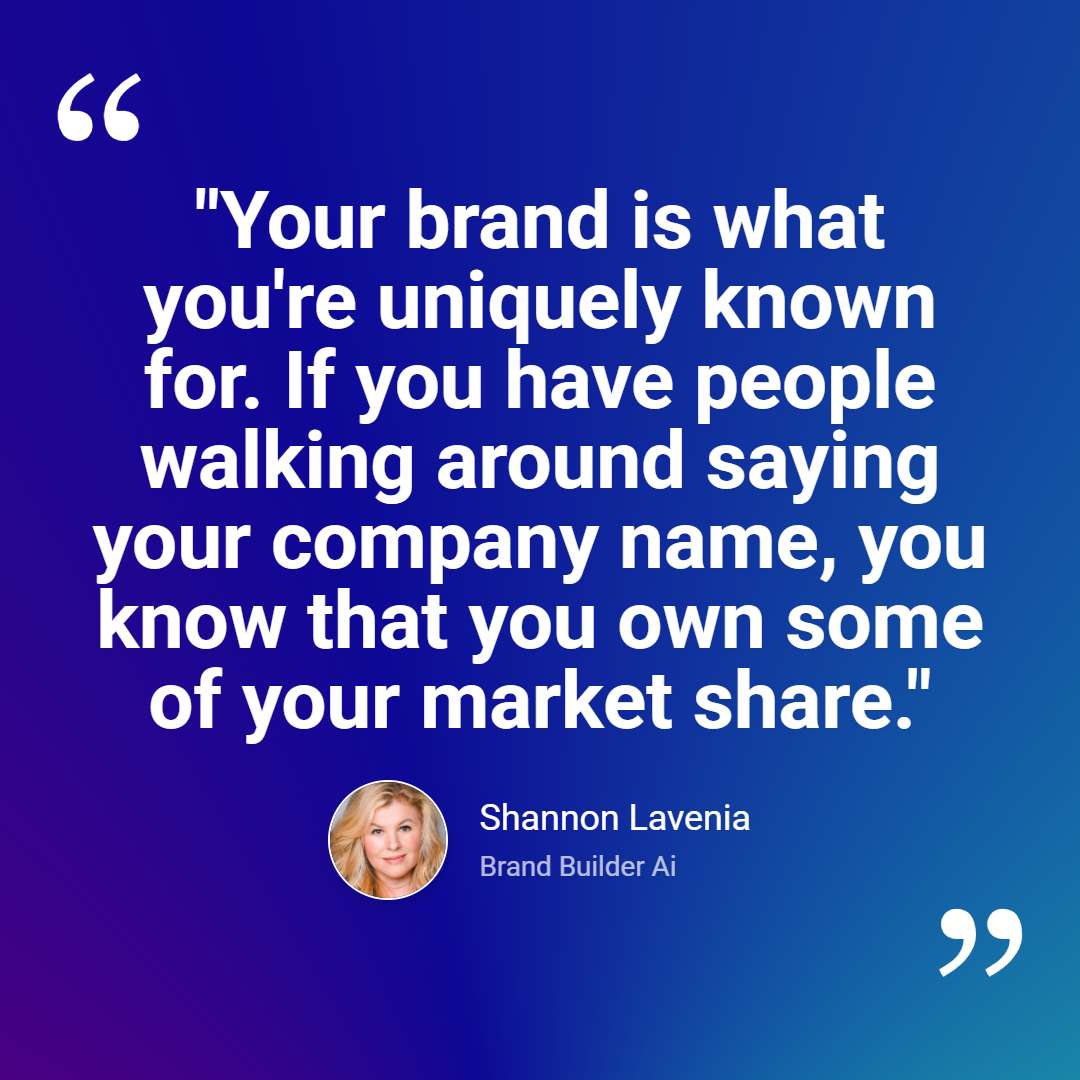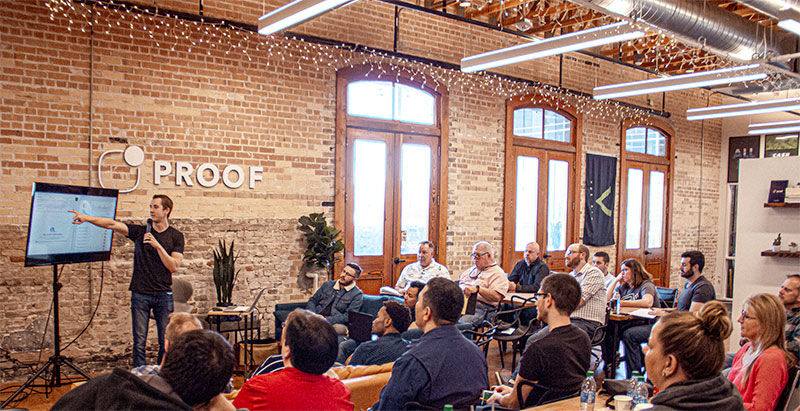As the host of the Unscripted SEO Podcast and a contributor to Founders Forge, I recently had the opportunity to interview Scott Hendison, a veteran SEO professional and founder of Search Commander Inc.. Our conversation covered everything from technical SEO challenges to practical advice for business owners looking to improve their online presence.
Key Takeaways
- Focus on making clients profitable, not just improving rankings
- Attribution tracking is the most neglected area in SEO
- WordPress specialization improves efficiency and results
- Real-world community involvement creates valuable link opportunities
- Inspect your own website regularly from a user’s perspective
- Entity linking may help websites avoid being negatively impacted by helpful content updates
Notable Quotes
“My job is not to just make you rank better, it’s to make sure you’re making money, to make you profitable.” – Scott Hendison
“Once you log in [to Webflow], it’s interesting, I understand how it’s built… and I think I don’t want any part of it.” – Scott Hendison
“You want good links, cure cancer. I’ll get you links from CNN and Fox News and everyone. Do something newsworthy.” – Scott Hendison
“Coming up with ideas is the best use of AI that I’ve found.” – Scott Hendison
“Anybody who tells you they’ve got it dialed in, I’m an expert, I know everything, they’re either lying or naive.” – Scott Hendison
Current Technical SEO Challenges
I kicked off the conversation by asking Scott what he’s currently working on. He explained he’s helping a contractors company track their leads better, dealing with a large entity called Service Titan:
“Literally at the moment I’m working with a contractors company to try to track their leads better and there’s a large entity called Service Titan that is a provider to lots and lots of contractors and this big huge company that a lot of people subscribe to is so behind the eight ball… They’re so behind the eight ball and the technical challenges are so frustrating with implementation of, you know, how hard could it be to say, okay, here’s a form that will suck everyone into your ecosystem. And we’ve been messing with going round and round with them for three months.”
Scott mentioned that a Service Titan consultant ultimately told them the system simply isn’t ready for what they’re trying to do. He draws a parallel to the challenges with GA4 implementation and notes that his time is split between small local businesses and consulting for larger teams.
Finding Your SEO Specialization
When asked about his specialization, Scott described himself as “a jack of all trades, master of none,” though he rarely handles paid advertising:
“I’m a little bit unique in that I like to say I’m a jack of all trades, master of none. But I have my own preferences. I’ll rarely touch paid, unfortunately. Rarely is not never.”
He explained that when working with companies that have large teams, he’s learned to be respectful of their existing knowledge:
“When I’m working with an agency or I’m working with a company who has a large team, I’ve had to learn over the years to really be respectful of what they may or may not know already and not sound too condescending when you’re like, well, this is the title tag. You can see it if you hover over the tab in your thing.”
The Most Neglected Area of SEO
I asked Scott about neglected areas in SEO that can bring surprising value. Scott emphasized that understanding traffic attribution is critically important:
“My job is not to just make you rank better, it’s to make sure you’re making money, to make you profitable. If I’m bringing you only one client a month, but they’re spending a million dollars, then that’s a winner.”
He explained that tracking where traffic comes from and what leads to conversions or phone calls is often neglected:
“That’s something that it didn’t, I mean was obviously it was easier in universal analytics, but setting that up again in GA4, there are so many people that I’ve run across. I mean I’m not a huge agency and it’s not like I’m seeing dozens and dozens of sites every month, but everything I look at, it’s not set up. You can’t tell anything from the end. We implemented GA4. Well yeah you did, you put the script on, but you didn’t set up anything because, well, because you shouldn’t have to, but that’s another story.”
GA4 Implementation Challenges
I shared my own challenges with GA4 data and mentioned my solution: “My solution has been to use a Google Data Studio, a Looker Studio that is called GA4 Classic, and it displays like 95% like GA3.”
Scott acknowledged he has the same bookmark for GA4 Classic Mode and questioned why Google would rename something well-branded like Google Data Studio to “Looker,” which fewer people recognize. I joked that they should put “the person that did that and the person that created GA4 into a cage and have them fight.”
Common SEO Mistakes
I asked about the biggest mistakes Scott has seen on client sites. Scott mentioned sites blocked from indexing via robots.txt, but says the most common issue he currently sees is poor title tags:
“I think the most common one I see is, the most common one I see right now, the agency that comes to mind is all the websites they build, the title tag is home, or the home page. Literally, I’m like, you guys have been working with this company for eight months and their title tag is “Home| Company Name.”
Another major mistake Scott identifies is “leaving things alone” when Google values updating content:
“And I really think, not to be overly simplistic, I think title tag reviews and then the other biggest mistake is, one that we’re guilty of is leaving things alone. Google values updating, updating, updating, to your pages, change your title tag a little bit. Even if you know you’d rather it say exactly this, make it say this. Change a couple paragraphs. There are tools I’ve heard that help you right now. So you can drop in your paragraphs and you can use AI intelligently to freshen up those pages. That’s a hugely under overlooked process.”
Content Updates and Google Leaks
I shared that I’ve been experimenting with updating old posts and republishing them with current dates. Scott confirmed he’s heard of plugins that automatically change published dates and agrees that a newer published date can be valuable.
We discussed whether this approach might be considered “gray hat” SEO. Scott doesn’t think it’s “blackhat” but acknowledges it might be in a gray area:
“Is it blackout? I don’t think so. Is it gray? Maybe.”
The conversation shifted to the Google leak that occurred months prior. Scott believes it was genuinely from Google but contained outdated information:
“I absolutely think it was Google. I think a lot of it was very old outdated information. It is like, there was gold in them hills. These are all the hills. There was gold in them. Is it still valuable? And that’s what the leak really didn’t tell us anything. I think it confirmed a lot of suppositions that I had made, that you had made. I didn’t see anything that was hugely groundbreaking where you’re like, my god, I had no idea they would look at that.”
Link Building in Modern SEO
“Well, it’s my unpopular opinion and my solution has been to literally not build links unless they have something link worthy to build, to build links to. Links for the sake of links purposes, we stopped doing that in December of 2011, like about six months before Penguin.”
“When it comes to actually creating something link-worthy, that’s where you get PR involved, local news, local news sources are hungry, well, they have been hungry for content out there. Although now AI is changing that a little bit, I think we’ll just make it up.”
“You want good links, cure cancer. I’ll get you links from CNN and Fox News and everyone. Do something newsworthy. For a local business, supporting your local infrastructure with your local community, sponsoring little league teams, that hasn’t changed.”
Digital PR and Community Involvement
I shared my own experience with community involvement:
“I just did a park cleanup here in Sparta, Tennessee, in Cookeville, you know, for an asphalt client. And, you know, we got a few links from City Hall and Chamber of Commerce, and we also walked away with multiple bags of trash from that park, and that felt good. This can really help when you’re not doing the “easy work” when you have a client doing something easy like selling cute puppies, but instead it might be a tougher sell if you’re doing crime scene cleanup services.
Scott agreed and references the concept of “Real Company Stuff” (RCS) coined by SEO professionals:
“And it’s hard to explain to the plumber why that’s link-built. He’s like, what does that have to do with my website? Why should I have to do this? Well, it’s… What was the RCS? Real Company Stuff, right? They used to say, it was Todd Malachot, I think, Stuntdower was the first person to say, well, you do real company stuff, real company stuff. That’ll get you local attention.”
We discussed the challenges of getting businesses to understand this approach to link building and the value of using ChatGPT for ideation:
“And that’s where I went through this with a, I teach clients or show clients, chat GPT, and I’m like, ask for ideas. You know, if I run a New York Ford Dealership in the winter. What can I do for my community that might generate a positive response for my marketing. I mean, ask them a specific question like that and it will come back with ideas. I don’t like any of those ideas or, I like that idea. Can you expand on that? How would I proceed? And it’s amazing for ideation. Coming up with ideas is the best use of AI that I’ve found.”
AI Content and Helpful Content Update
The conversation turned to AI-generated content. Scott mentioned he’s running an experiment with a local service website using “pure AI content”:
“I’m running my own experiment on a local service website that’s got nothing but pure AI content. And funny enough, it’s not, I mean, it’s doing okay, it’s getting more and more visibility. The more pages that get added, the more impressions it gets. It’s not crushing it or doing super well, but it’s only been a couple months and the pages are getting indexed.”
I questioned whether the helpful content update was Google’s anti-AI tool:
“I view the helpful content as more a clap back against like just massive programmatic SEO of like, I’ve got a format, I’ve got a database of information. So I’m going to make a website of all of the celebrities birthdays and get it, make a bunch of, you know, put ads on each of these and throw up useless content.”
Scott noted this seems like a “recycled tactic” similar to how people used to create websites to earn AdSense revenue:
“Yeah, and that’s a very, it’s like a recycled tactic. That made me think of, remember Anna Nicole Smith, a good friend of mine that used to be on the board at SEM PDX had an Anna Nicole Smith website back in the day and it was just regurgitated garbage stuff, but he had traffic and he was getting adsense checks on the regular that just grew and grew and grew and and it feels like AI is going to bring all that stuff back.”
Scott shares frustration with inconsistent Google search results, citing examples where results are inexplicably bad or unhelpful, while other searches deliver amazingly useful information. You can follow Scott on Twitter @shendison for more of his observations on search quality.
Google Antitrust and Industry Future
I brought up Google’s antitrust lawsuit and monopolist practices. Scott expressed hope for a breakup, suggesting:
“I’d like to him force a breakup of some point and really they could just move ads out. I like, okay, you have to break off ads. That would be a severe, I don’t know how much penalty it would be. It would be a lot of complication for them, but it would really put up that wall of separation, phrase, whatever you need to call it between the two.”
Scott references emails that came out during the case:
“It’s amazing. Those emails that came out where the president was actually suggesting maybe if we made the search results worse, they would search again and be more likely to click on an ad. That’s a smoking gun.”
We discussed how the average user often doesn’t realize how many results are actually ads, with Scott noting:
“Yeah, it’s frustrating as a… I don’t think the average user really realizes how many ads there are still to this day. They see there’s one sponsored result and then they’ll do two screen swipes and they’re still in the ads. I think every display ad should be marked that it’s an ad. But I’ve also clicked on ads myself because yeah, that’s exactly what I want. I have nothing against a well-written ad that serves the purpose, is getting me to where I want to go.”
I argued that platforms shouldn’t prioritize ads that pretend to be organic results:
“Yeah, don’t complain about the ads existing. I complain about a platform that prioritizes and pretends that ads are an organic result and plays off of low knowledge users to try to get them to click through on an ad when you know it should be more clearly an ad.”
Entity SEO and Final Advice
As we wrapped up, Scott mentioned research by Bill Hartzer suggesting that sites hit by the helpful content update hadn’t implemented entity linking:
“Bill Hartzer just wrote something really interesting that he did some study and he found that the sites that were hit by, the sites that were hit by helpful, by the HCU had not implemented any sort of entity linking, and like a service like inLinks or manually going through and putting links to the credible Wikipedia pages about topics you’re talking about. Entity SEO is a broad topic and I’m not trying to get into that but he found a correlation between sites, he says he found a correlation between sites that implemented it, that hadn’t implemented it getting hit by HCU and sites that are using entity SEO had not been hit.”
For his final piece of advice, Scott encouraged business owners to regularly examine their own websites:
“I would say if you’re a small business owner or a business owner, the thing you can do that’s probably the most valuable, and this goes back to a Chamber of Commerce presentation that I gave years ago, was look, for God’s sake, look at your own website. Look at your website on your phone. Forget how it ranks, look at the experience that your users are getting when they’re on your site.”





